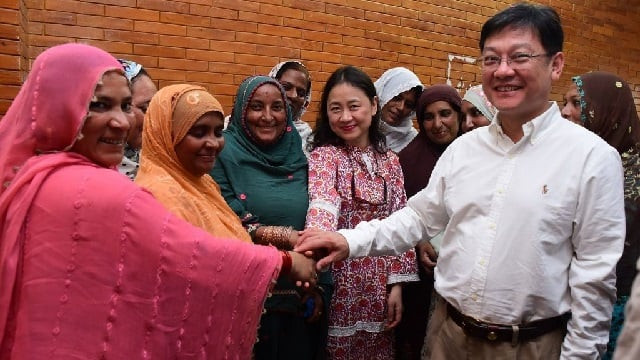ADB approves $200m loan for BISP
Additional funding is aimed at supporting for Pakistan's social safety net project

Additional funding is aimed at supporting for Pakistan's social safety net project. PHOTO: FILE
The ADB approved a $200 million loan as additional financing to help support the government of Pakistan's flagship social protection program, the Benazir Income Support Program (BISP), according to a handout issued by the local office of the ADB.
The BISP supports more than five million eligible families across the country through over $3.6 billion in total cash transfers disbursed so far.
In 2013, the ADB had also approved $430 million under Pakistan Social Protection project. The original project closure date was June 2019. The ADB has already extended the closing date by one year besides making other about half a dozen amendments in the original loan agreement of November 2013.
Last year, the ADB also approved diverting funds of about $48 million from Waseela-e-Rozgar and Waseela-e-Sehat programmes to BISP graduation programme. It now plans to spend this money through the National Rural Support Programme, which has increased the administrative cost.
The cash disbursements under the BISP are also part of the International Monetary Fund (IMF) programme aimed at offsetting adverse impacts of the fiscal and monetary adjustments on the lowest income groups of the country. The government has already disbursed Rs1,000 one-off additional per person tranche to partially offset the impacts of the increase in electricity and gas prices and hike in prices of commodities.
The ADB underlined in its handout that the BISP, considered one of the largest social protection programs in South Asia, was part of a larger government strategy, called Ehsaas, to reduce poverty and inequality. The BISP, which is primarily funded by the government of Pakistan, supports Ehsaas through cash transfers, poverty graduation programs, and a targeted social safety net.
The ADB-financed Social Protection Development Project, approved in October 2013, has enabled the enrolment of over 855,000 women beneficiaries to BISP, or about 15% of the eligible beneficiaries. The $200 million additional financing for this project will continue to support cash transfers as well as help BISP implement institutional strengthening measures, said the ADB.
"Social protection programmes like the BISP are crucial to ensure that the poorest segments of the population do not go further into poverty, especially at a time when the country is facing difficult macroeconomic challenges," said the Director of Public Management, Financial Sector, and Trade for ADB's Central and West Asia Department Tariq Niazi.
"We are also committed to helping the government of Pakistan implement alternative modalities for social protection and poverty reduction such as asset transfer programs that promote improved human capital and reduce intergenerational poverty."
"ADB's additional financing will support further institutional strengthening and improvements in financial management and controls in BISP. A policy research unit will also be established within BISP to help monitor and improve the performance of ongoing programs and design new cost-effective and evidence-based initiatives such as poverty graduation programs and conditional cash transfers for health and nutrition in line with global best practices," said ADB Country Director for Pakistan Xiaohong Yang.



















COMMENTS
Comments are moderated and generally will be posted if they are on-topic and not abusive.
For more information, please see our Comments FAQ